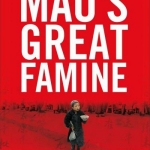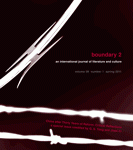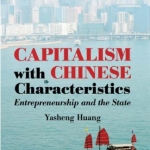Articles in the China Studies Category
Great Leap Forward, Reviews »

Excerpts from Cormac Ó Gráda’s review of new book by Dikötter, Mao’s Great Famine. “MGF may become the best-known account of the GLF famine for a while. But should it? It is not a comprehensive account of the famine; it is dismissive of academic work on the topic; it is weak on context and unreliable with data; and it fails to note that many of the horrors it describes were recurrent features of Chinese history during the previous century or so…”
China Studies, Contemporary China »

Edited by Q. S. Tong and Jiwei Ci. “Since the open-door policy was formally adopted in 1978, {China} has been undergoing radical sociohistorical transformations that have created not only unprecedented wealth, new freedoms, and possibilities, but also widespread and significant inconsistencies and discontinuities that characterize the everyday life of China at the present moment. Is China’s substantially marketized economy sufficient evidence of its abandonment of socialism? Is it a socialist market economy or marketized socialism? Is it a socialist state with “Chinese characteristics” or one without socialism? Would the continuation of economic reform lead to democratization? Thirty years after the reform, China has emerged as a site of paradoxes and contradictions. Contemporary China cannot be fully understood unless some of its most significant new features are identified, analyzed, and comprehended; but our attempt to understand what is unfolding in China requires an acknowledgment of the inadequacies of the accepted views and formulations about the country.”
Husunzi, Ongoing Struggles, Reviews »

Extracts from and comments on Ho-fung Hung’s article on class relations in Hong Kong politics, “Uncertainty in the Enclave,” in the new issue of New Left Review. I focus on working class formation and resistance in the 1950s-1960s, and the recent revival of HK’s anti-authoritarian left through mobilizations against the WTO and urban renewal evictions, and as part of the left wing of HK’s democracy movement, whose distance from the right wing seems to grow as life becomes more precarious for much of HK’s younger population.
Chinese Revolutionary History, Husunzi, Reviews, Rural China »

John Lowrie criticizes my alleged use of the concept of “state capitalism” to analyze Mao-era socialism and the “people’s commune” system (in my review of Red Earth by Stephen Endicott, published issue #3 of China Left Review), and he proposes an alternative program for the transition to communism. Here I respond to both comments, clarifying the position introduced in my review.
Contemporary China, LangYan, Reviews »

Joel Andreas reviews Huang Yasheng’s Capitalism with Chinese Characteristics in the latest New Left Review, which also contains a response from Huang.
Andreas: “Huang’s diagnosis of the maladies afflicting rural China is clearly informed by one of the foundational myths of neo-classical economics—the ideal of competitive capitalism. Free competition, it is assumed, creates a level playing field on which small entrepreneurs naturally flourish. If small entrepreneurs are squeezed out, it must be the fault of the state, which tips the playing field to the advantage of favoured players. The reality is quite different. Market competition intrinsically centralizes property without the need for state intervention. Winners squeeze out losers, amass capital, capture market share and block new entrants. The state often facilitates this process by favouring the winners, but it can also inhibit it by protecting the weaker players. Over the last two centuries, peasants and small rural entrepreneurs have been the main losers as capitalism has swept across the globe.”
